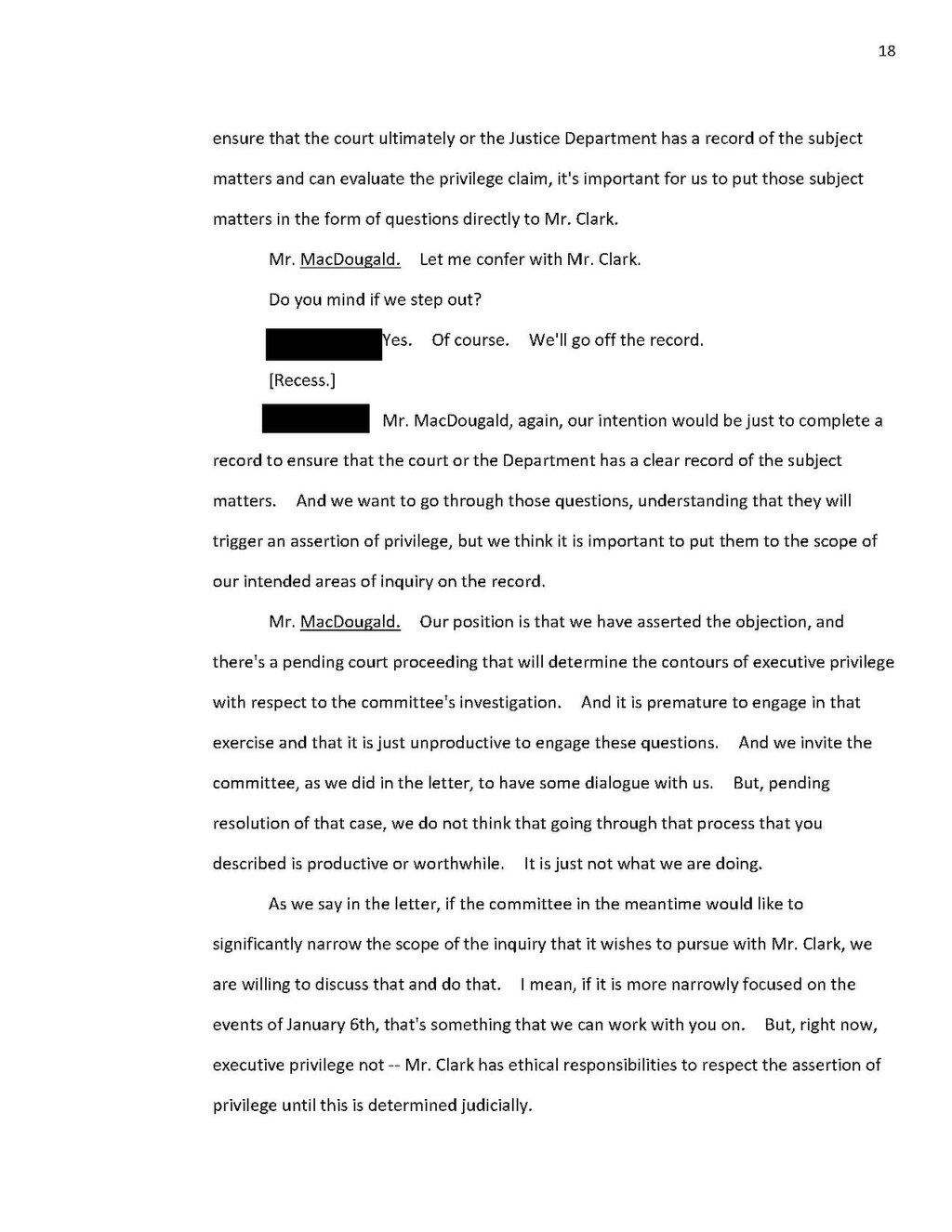ensure that the court ultimately or the Justice Department has a record of the subject matters and can evaluate the privilege claim, it's important for us to put those subject matters in the form of questions directly to Mr. Clark.
Mr. MacDougald. Let me confer with Mr. Clark.
Do you mind if we step out?
Yes. Of course. We'll go off the record.
[Recess.]
Mr. MacDougald, again, our intention would be just to complete a record to ensure that the court or the Department has a clear record of the subject matters. And we want to go through those questions, understanding that they will trigger an assertion of privilege, but we think it is important to put them to the scope of our intended areas of inquiry on the record.
Mr. MacDougald. Our position is that we have asserted the objection, and there's a pending court proceeding that will determine the contours of executive privilege with respect to the committee's investigation. And it is premature to engage in that exercise and that it is just unproductive to engage these questions. And we invite the committee, as we did in the letter, to have some dialogue with us. But, pending resolution of that case, we do not think that going through that process that you described is productive or worthwhile. It is just not what we are doing.
As we say in the letter, if the committee in the meantime would like to significantly narrow the scope of the inquiry that it wishes to pursue with Mr. Clark, we are willing to discuss that and do that. I mean, if it is more narrowly focused on the events of January 6th, that's something that we can work with you on. But, right now, executive privilege not — Mr. Clark has ethical responsibilities to respect the assertion of privilege until this is determined judicially.
